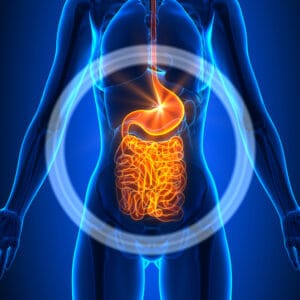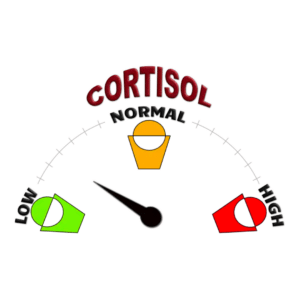Unlike coeliac disease (CD), which is widely recognised and accepted by the scientific community as a serious autoimmune disorder, non-coeliac gluten sensitivity (NCGS) is a topic of much debate among the public and in the media. It refers to a scenario whereby people who do not have CD or wheat allergy (WA) experience a wide range of symptoms after consuming wheat or gluten (1). Such people often improve on a gluten-free diet but are invariably ridiculed or mocked for avoiding gluten or wheat.
CD is mediated by the immune system and occurs in genetically susceptible people with either one of, or both, the HLA-DQ8 or HLA-DQ2 genotypes. (2). It is an autoimmune condition triggered by the consumption of gluten that damages the lining of the small intestine and interferes with the absorption of nutrients from food (1). The only known treatment for CD is a strict, lifelong gluten-free diet. People with CD who continue to consume gluten can experience serious health problems, including malnutrition, osteoporosis, and an increased risk of certain cancers. In terms of blood biomarkers, the tTG2 autoantibody is regarded as the most sensitive marker for CD. In people with WA, specific IgE antibodies bind to wheat proteins triggering an inflammatory response (3). Unlike CD and WA, in people with NCGS, such autoimmune and allergic mechanisms cannot be ascertained (4).
Cases of gluten sensitivity, with symptoms ranging from gastrointestinal discomfort and neurological issues to fatigue and skin rashes, were collectively referred to (2) as NCGS. Since then, further studies have led to a definition of NCGS, which is that NCGS is characterised by specific pathological and clinical manifestations related to the ingestion of gluten in patients in whom WA and CD have been ruled out (2,, 5, 6, 7). Unlike CD, NCGS is not an autoimmune disorder. The diagnosis of NCGS is based on the presence of symptoms after consuming gluten and the improvement of those symptoms on a gluten-free diet (6).
The scientific evidence suggests that NCGS is a real and growing problem, although the exact prevalence of the condition is unknown. This is mainly due to its recent recognition as a disease by the scientific community and the lack of reliable biomarkers for diagnosis (8). Epidemiological studies of NCGS are survey-based and estimate only the self-reported prevalence of NCGS, either through online platforms or face-to-face interviews. (9)
Some studies have estimated that NCGS affects as many as 6-7% of the general population, although other estimates are lower (10). One study published in the journal BMC Gastroenterology in 2014 found that a group of people who experienced symptoms after consuming gluten but who did not have CD or WA did show improvement in their symptoms on a gluten-free diet (11). Another study published in the journal BMJ Gut 2016 found that people with self-reported NCGS had similar symptoms to those with CD but did not have the same intestinal damage or immune response (12).
It is important to note that not all studies have found a clear link between gluten and symptoms in people with self-reported gluten sensitivity. Some researchers have suggested that several factors, such as other food sensitivities or certain types of bacteria in the gut, may contribute to the symptoms experienced by certain people who claim to be sensitive to gluten.
For example, adverse reactions to gluten were attributed to FODMAPs (fermentable oligosaccharides, disaccharides, monosaccharides, and polyols). (1) These are mostly complex, long-chain carbohydrates that cause digestive issues in people who have trouble breaking them down. The low-FODMAP diet is used for these people to help reduce symptoms, and several studies have shown that some people who believed they were gluten intolerant had FODMAP intolerance (1). However, there have been several studies since then that have answered the question of NCGS more definitively. For example, in (12) the subset of participants with NCGS were examined before they started a gluten-free diet and improved significantly regarding their inflammatory markers after six months on a gluten-free diet.
To conclude, the scientific evidence shows that NCGS is a legitimate health condition and a growing problem. However, one of the most significant issues in determining its prevalence, which has been alluded to above, is the absence of definitive biomarkers and conventional testing. Whereas CD is characterised by an immune reaction to a specific epitope of gliadin, a gluten protein, and one type of transglutaminase enzyme tTG2, we now know that people react to other components of wheat and gluten as well as other types of transglutaminase enzymes (12, 13). If a person reacts to those, which is the case with an ever-increasing number of people, that person will test negative for CD and be told that they do not have an issue with gluten. Hence the difficulty in determining the prevalence of NCGS.
Sources
- Biesiekierski, J.R., Newnham, E.D., Irving, P.M, et al. (2011). Gluten Causes Gastrointestinal Symptoms in Subjects Without Celiac Disease: A Double-Blind Randomized Placebo-Controlled Trial. American Journal of Gastroenterology, 106(3), pp.508–514. doi:10.1038/ajg.2010.487.
- Sapone, A., Bai, J.C., Ciacci, C., et al, (2012). Spectrum of gluten-related disorders: consensus on new nomenclature and classification. BMC Medicine, 10(1). doi:10.1186/1741-7015-10-13.
- Cianferoni, A. (2016). Wheat allergy: diagnosis and management. Journal of Asthma and Allergy, p.13. doi:10.2147/jaa.s81550.
- Catassi, C., Bai, J., Bonaz, B., et al. (2013). Non-Celiac Gluten Sensitivity: The New Frontier of Gluten Related Disorders. Nutrients, 5(10), pp.3839–3853. doi:10.3390/nu5103839.
- Barbaro, M.R., Cremon, C., Stanghellini, V, et al. (2018). Recent advances in understanding non-celiac gluten sensitivity. F1000Research, 7, p.1631. doi:10.12688/f1000research.15849.1.
- Ludvigsson, J.F., Leffler, D.A., Bai, J.C., et al. (2012). The Oslo definitions for coeliac disease and related terms. Gut, [online] 62(1), pp.43–52. doi:10.1136/gutjnl-2011-301346.
- Ierardi, E., Losurdo, G., Piscitelli, et al. (2018). Biological markers for non-celiac gluten sensitivity: a question awaiting for a convincing answer. Gastroenterology and Hepatology From Bed to Bench, [online] 11(3), pp.203–208. Available at: https://www.ncbi.nlm.nih.gov/pmc/articles/PMC6040034/ [Accessed 28 Jan. 2023].
- Reese, I., Schäfer, C., Kleine-Tebbe, J., et al. (2018). Non-celiac gluten/wheat sensitivity (NCGS)—a currently undefined disorder without validated diagnostic criteria and of unknown prevalence. Allergo Journal International, 27(5), pp.147–151. doi:10.1007/s40629-018-0070-2.
- Aziz, I. (2018). The Global Phenomenon of Self-Reported Wheat Sensitivity. American Journal of Gastroenterology, 113(7), pp.945–948. doi:10.1038/s41395-018-0103-y.
- Igbinedion, S.O., Ansari, J., Vasikaran, A, et al. (2017). Non-celiac gluten sensitivity: All wheat attack is not celiac. World Journal of Gastroenterology, 23(40), pp.7201–7210. doi:10.3748/wjg.v23.i40.7201.
- Caio, G., Volta, U., Tovoli, F, et al. (2014). Effect of gluten free diet on immune response to gliadin in patients with non-celiac gluten sensitivity. BMC Gastroenterology, 14(1). doi:10.1186/1471-230x-14-26.








